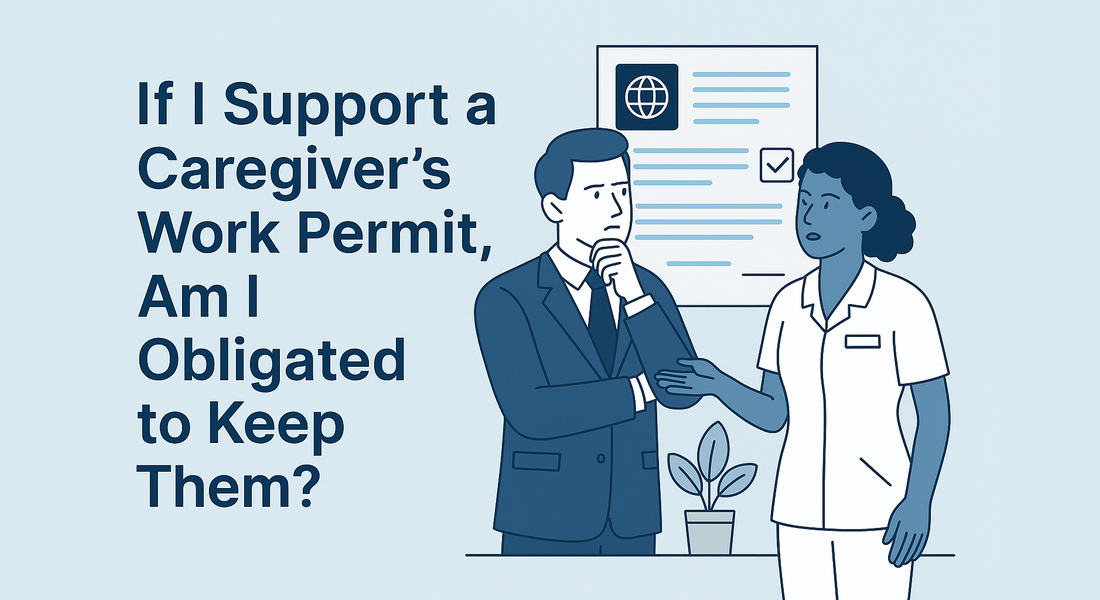For Canadian families, hiring a caregiver often means applying for a Labour Market Impact Assessment (LMIA) and then supporting the caregiver’s work permit application. A common concern is: If I support the caregiver’s work permit, am I legally bound to keep them?
The answer is nuanced — employers do have obligations, but they are not permanently tied to a caregiver.
1. Employer Obligations After Supporting a Work Permit
When you support a caregiver’s work permit with a positive LMIA:
- You are committing to the terms in the LMIA and contract (wages, duties, location).
- You must provide safe, fair working conditions in compliance with Canadian labour laws.
- You cannot recover the $1,000 LMIA fee or recruitment costs from the caregiver.
2. Can an Employer End the Employment Relationship?
Yes — supporting a caregiver’s work permit does not remove your right to end the employment if things don’t work out.
- Employers must follow provincial labour standards (termination notice or pay in lieu).
- Ending employment without cause is allowed, but it must be done fairly and legally.
- You may need to reapply for a new LMIA if you want to hire another caregiver.
3. What if the Caregiver Hasn’t Arrived Yet?
If the caregiver’s work permit has not yet been approved or issued:
- You can request a name change on the LMIA by submitting Form ESDC-EMP5661 to Service Canada (at least 15 business days before expiry).
- If you withdraw completely, the LMIA fee is non-refundable.
4. What Happens to the Caregiver?
- If employment ends, the caregiver may look for another LMIA-approved employer to support a new work permit.
- Caregivers are not “stuck” with one family forever — they can transition, though it requires new approval.
Key Takeaways
- Supporting a caregiver’s work permit is a serious commitment, but not a permanent lock-in.
- Employers can end employment, provided they respect labour laws and contract terms.
- A new LMIA is usually required to hire a replacement caregiver.
- Caregivers also have the right to seek another employer if things don’t work out.
👉 Families should enter the LMIA process with confidence, but also know they have flexibility if circumstances change.

